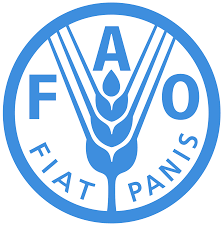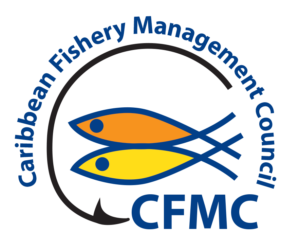Quick Links
GCFI75 – Fort Walton – Destin, Florida
ABOUT THE CONFERENCE
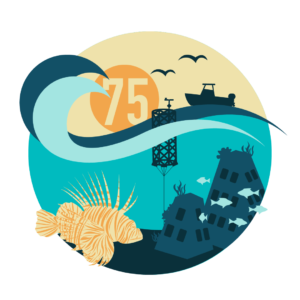
GCFI is pleased to announce that the 75th annual meeting of the Gulf and Caribbean Fisheries Institute (GCFI 75) will be held in Fort Walton Beach, FL from 7 – 11 November 2022 at The Island Hotel.
GCFI is partnering with the Okaloosa County, the Destin – Fort Walton Beach Convention Center and Visitor Bureau to host GCFI75.
The Island Resort will serve as the main hotel while the meeting will be hosted across the street at the Destin – Fort Walton Beach Convention Center. The Island Resort is a 329 room beachside resort that has multiple resort-style amenities, bars, onsite restaurants, and complimentary parking and is ideally located close to several attractions.
Click here, select the dates and room type you are interested in on the booking screen and click BOOK NOW:
GCFI Annual Meeting
Guests may also book over the phone by calling 850-337-9194.
Monday through Friday 9:00 am to 6:00 pm CDT to make their reservations
Event Details
Start date: 11/5/22
End date: 11/13/22
Last day to book: 10/6/22
Cancellation Policy: 48 hours prior to arrival
Deposit Policy:
Rate: starting at $110.00 USD per night plus tax
Please note: Guest’s need to contact the group housing coordinator directly, if they want to extend their stay or book different room types outside of the group block (which is subject to availability and rate).
Reservations needed after the cutoff date must be booked directly through group housing. The group rate after cutoff is not guaranteed, and is subject to current availability. Click here to book
GCFI 75 registration includes access to our conference app (Whova) all technical sessions, the Fisheries for Fishers forum, special thematic sessions, the poster session, the CINEFISH film festival, field trips, socials and other special events.
Registration can be completed online at: https://www.gcfi.org/conference-registration/
The registration rates are as follows:
| GCFI Members | In Person
Rate (USD) |
Virtual Rate
(USD) |
| Regular Early-Bird (through 30 September) | 200 | 125 |
| Regular | 250 | 150 |
| Regular Onsite | 300 | N/A |
| Student Early-Bird (through 30 September) | 75 | 25 |
| Student | 95 | 50 |
| Student Onsite | 125 | N/A |
| Non-Members | In Person
Rate (USD) |
Virtual Rate
(USD) |
| Regular Early-Bird (through 30 September) | 300 | 200 |
| Regular | 350 | 250 |
| Regular Onsite | 400 | N/A |
| Student Early-Bird (through 30 September) | 125 | 75 |
| Student | 145 | 100 |
| Student Onsite | 175 | N/A |
GCFI acknowledges that some of our members may not be able to afford virtual registration rates due to hardships experienced as a result of COVID-19. Please email [email protected] to submit a request for waiver of virtual registration fees.
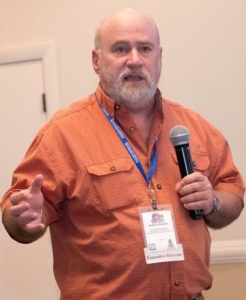 Bob Glazer recently retired from the Florida Fish and Wildlife Commissions’ Fish and Wildlife Research Institute where he served as the Principal Investigator of the queen conch research and restoration program in Marathon. His research focused on stock restoration, essential habitat, larval recruitment, endocrine disruption, marine fishery reserves, and stock structure. He has worked extensively on molluscan aquaculture for both commercial and restoration projects. In 1994 he received the first Florida Jaycees Outstanding Young Environmentalist award and in 2006 he was the first marine recipient of the Southeast Association of Fish and Wildlife Agencies Fishery Biologist of the Year. In 2018, he received the Director’s Award for his lifetime of achievement.
Bob Glazer recently retired from the Florida Fish and Wildlife Commissions’ Fish and Wildlife Research Institute where he served as the Principal Investigator of the queen conch research and restoration program in Marathon. His research focused on stock restoration, essential habitat, larval recruitment, endocrine disruption, marine fishery reserves, and stock structure. He has worked extensively on molluscan aquaculture for both commercial and restoration projects. In 1994 he received the first Florida Jaycees Outstanding Young Environmentalist award and in 2006 he was the first marine recipient of the Southeast Association of Fish and Wildlife Agencies Fishery Biologist of the Year. In 2018, he received the Director’s Award for his lifetime of achievement.
Bob also served as the Principal Investigator on a number of climate change adaptation projects. He developed the KeysMAP (Florida Keys Marine Adaptation Planning) program which uses scenarios to develop climate adaptation strategies, identifies triggerpoints for implementing the strategies, and develops monitoring program to identify when the triggerpoint is attained. He was the leader of the Florida FWC climate change Research and Monitoring workgroup. He also served as the chair of the Monroe County Climate Change Advisory Committee whose objective is to make recommendations to the Board of County Commissioners on how best to adapt to a changing climate in the Florida Keys. In 2016 he received the Leadership Award Honorable Mention of the National Fish, Wildlife, and Plants Climate Adaptation Strategy.
 Dr. Lekelia “Kiki” Jenkins is a marine sustainability scientist and Associate Professor at Arizona State University. She grew up in Baltimore, Maryland, fishing and crabbing recreationally on the Chesapeake Bay and volunteering as a junior zookeeper. She received her PhD from Duke University by pioneering a new field of study into the invention and adoption of marine conservation technology. Her research centers on the human dimensions of marine sustainability solutions, including fisheries conservation technologies and marine renewable energy. Her work has led to regulatory changes that allow more sustainable fishing practices, has advised international fisheries diplomacy, and has informed renewable energy policy. Dr. Jenkins also studies the science dance as a means of science engagement, science communication, and social change. Among her many honors and awards, she received an Alfred P. Sloan Research Fellowship in Ocean Sciences and is a member of to the National Academies of Sciences Ocean Studies Board.
Dr. Lekelia “Kiki” Jenkins is a marine sustainability scientist and Associate Professor at Arizona State University. She grew up in Baltimore, Maryland, fishing and crabbing recreationally on the Chesapeake Bay and volunteering as a junior zookeeper. She received her PhD from Duke University by pioneering a new field of study into the invention and adoption of marine conservation technology. Her research centers on the human dimensions of marine sustainability solutions, including fisheries conservation technologies and marine renewable energy. Her work has led to regulatory changes that allow more sustainable fishing practices, has advised international fisheries diplomacy, and has informed renewable energy policy. Dr. Jenkins also studies the science dance as a means of science engagement, science communication, and social change. Among her many honors and awards, she received an Alfred P. Sloan Research Fellowship in Ocean Sciences and is a member of to the National Academies of Sciences Ocean Studies Board.
When planning your travel, please be aware that Destin – Fort Walton Beach Airport (VPS) does not fly to Miami or Ft. Lauderdale. The three main hubs that fly to Destin – Fort Walton Beach are Atlanta, Dallas and Charlotte. Other options for getting to Destin – Fort Walton Beach include:
- From Miami or Ft. Lauderdale to Tallahassee and drive 2.5 hrs. to Ft. Walton Beach
- Flight from Miami or Ft. Lauderdale to Pensacola and drive 1 hr. to Ft, Walton Beach
Delta, American, Allegiant, and Southwest are the airlines that fly to Destin – Fort Walton Beach. Here is a map of all the direct routes:

Abstracts for GCFI75 are due by July 31, 2022. Abstracts will be accepted in English, French, and Spanish. ALL ABSTRACTS MUST BE ACCOMPANIED BY ENGLISH, SPANISH AND FRENCH TITLES. Abstracts are only required in one of the three languages; titles must be in all three languages. Abstracts must not exceed 250 words (275 for Spanish and French). Abstracts must be submitted online via the secure online Abstract Submission Form.
Acceptance to present within an oral or poster session requires submission of an extended abstract. Extended abstract preparation guidelines are available online. Members of GCFI are encouraged to submit full manuscripts or short communications based on presentations given at GCFI meetings to Gulf and Caribbean Research for peer review. Accepted manuscripts will be published open access at no charge to the authors through the GCFI-GCR partnership. Full manuscripts will also be accepted for publishing in the GCFI Proceedings.
Authors of accepted presentations will be notified via e-mail in September 2022. Submissions intended for the oral presentation, but not granted a slot, would automatically be accepted as a poster presentation. Regardless of the format, we encourage everyone who is interested in participating to submit an abstract.
The conference program features multi-disciplinary thematic sessions that have a mix of natural and social science, management, and technology related to the ecosystem or fisheries. Abstracts are solicited in the following areas (other subjects not listed will also be considered):
- Coastal and estuarine connectivity
- Governance, livelihoods, and organizations
- Reefs and associated ecosystems and fisheries
- Shallow and deep reef fishes
- Snapper and grouper fisheries
- Fish spawning aggregations
- Lionfish and other invasive species
- Artificial Reefs
- Marine protected areas science and management
- Pelagic ecosystem and recreational fisheries
- Continental shelf ecosystem fisheries
- Shrimp and demersal trawl fisheries
- Habitats and coastal management
- Climate change science and adaptation
- Sargassum science and management
- Aquaculture
- Communication and environmental education
- Marine litter science and management
- Queen conch, spiny lobster, oysters and other invertebrates
Living With Sargassum: Current Scientific Perspectives And Future Outlook For Fisheries, Coastal Managers And Entrepreneurs.
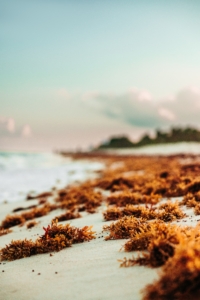 Organizers: Global Ocean Institute, World Maritime University, Sweden in association with CERMES, University of West Indies, Barbados, Gulf Caribbean Fisheries Institute.
Organizers: Global Ocean Institute, World Maritime University, Sweden in association with CERMES, University of West Indies, Barbados, Gulf Caribbean Fisheries Institute.
For over a decade, influxes of the floating sargassum seaweed to the Caribbean and Gulf of Mexico have caused major environmental and socioeconomic problems for fisheries, tourism and coastal communities. In the early years responses were reactive, uncoordinated and inefficient leading to environmental degradation. Millions of dollars were channeled into emergency efforts to deal with the problem, regional coordination, research to understand the problem and innovative ways of using sargassum for commercial purposes. With the realization that sargassum influxes will persist into the foreseeable future, proactive and coordinated management responses across the region are essential. However, as highlighted by the 2021 UNEP white paper on sargassum, it is a complex problem with inevitable trade-offs between clean-ups, harvesting initiatives and environmental impacts. The session will present a current state of understanding, with a particular emphasis placed on what the future holds and what research will be needed to resolve the key challenges.
 Keynote Speaker: Dr. Shelly Ann Cox:
Keynote Speaker: Dr. Shelly Ann Cox:
Current Scientific Perspectives And Future Outlook For Fisheries, Coastal Managers And Entrepreneurs.
For more than a decade, the Wider Caribbean and West Africa have experienced an unprecedented Transatlantic Triple Threat- Sargassum Influxes. This threat has also been described by scientists as the Great Atlantic Sargassum Belt, emphasizing the magnitude and complexity of this environmental issue. Sargassum influxes have caused significant social, economic and environmental impacts resulting in challenges to already strained climate-sensitive socio-economic sectors. Emerging impacts recently reported in the energy and water sectors highlight the need for adaptive management strategies to address this crisis. While efforts to explore potential opportunities are underway, the reality is that sargassum influxes remain more of a threat than a benefit until key issues are resolved. This presentation provides guidance on the operationalisation of the strategy framework and blue economy links proposed in the UNEP-CEP Sargassum White paper (2021). Existing and potential interventions are categorised under three main headings: Adaptation, Mitigation and Policy Development and Coordination. Established, emerging and nascent solutions including examples of sargassum product innovation will also be presented. Making the shift from a triple threat to opportunity requires more attention to potential value chains. Considerations for logistics, costs and resources at each stage of a potential sargassum value chain will be presented as well as cross cutting activities that support quality control and environmental and social safeguards. The presentation ends with a proposal on the promise of digital technologies including artificial intelligence, Internet of Things (IoT) and blockchain to support efficient operations and promote traceability in an effort to build sustainable sargassum value chains.
The Goals of the Session are to:
- Current understanding of the ecological causes and consequences of sargassum influxes.
- Management interventions/clean-up operations. What has worked, what has not? What the impacts have been; what is best practice?
- Fisheries responses and future prospects under continuing sargassum influxes.
- Social and economic challenges of sargassum influxes.
- Potential uses of sargassum. What are the most promising opportunities?
Contacts: Global Ocean Institute, World Maritime University Prof Francis Neat ([email protected]) and Dr Aleke Stofen O’Brien ([email protected])
2) Linking The International Year Of Artisanal Fisheries And Aquaculture To Sustainable Blue Economy Development In The Gulf And Caribbean Region.
 Organizers: Western Central Atlantic Fishery Commission (WECAFC) through financing from the European Union, Gulf Caribbean Fisheries Institute.
Organizers: Western Central Atlantic Fishery Commission (WECAFC) through financing from the European Union, Gulf Caribbean Fisheries Institute.
The International Year of Artisanal Fisheries and Aquaculture in the Western Central Atlantic Region is being celebrated under the theme of Recovery and Resilience. Across the region, a cross-section of stakeholders in artisanal fisheries and aquaculture has been mobilized to bring awareness to the importance of these sectors at the national, regional, and global scales. This special session welcomes presentations from scientists, researchers, managers, fishers, government officials, and other stakeholders that span research and practice on artisanal fisheries and aquaculture in the region. Presentations that address one or several of the following themes will be prioritized: Social Resilience, Innovation, Intersectoral Linkages, Artisanal fisheries, Aquaculture/aquaponics, Gender, and Youth in the Gulf and Wider Caribbean region. The intent of this session is to bring together collective perspectives and expertise from stakeholders on artisanal fisheries and small-scale aquaculture in the region. At the end of this session, we aim to identify opportunities to contribute to the continued development of the sector and integration into the blue economy dialogue in the region. At the same time, discussions from this section will contribute to ongoing work in the region on the Voluntary Guidelines for Securing Sustainable Guidelines for Small-Scale Fisheries and the United Nations Sustainable Development Goals.
Contact: For more information, please email Dr. Eric Wade [email protected] or [email protected]
1) Regional Women in Fisheries Forum
Organizers: Western Central Atlantic Fishery Commission (WECAFC), University of West Indies – Centre for Resource Management and Environmental Studies (UWI-CERMES), Gulf Caribbean Fisheries Institute.
As part of the International Year of Artisanal Fisheries and Aquaculture (IYAFA 2022), we will be hosting a Regional Women in Fisheries Forum. This special session aims to acknowledge, celebrate, and recognize the important role women play across the small-scale fisheries and aquaculture value chain. In this session, women from across the region will have the opportunity to network and learn from each other based on experiences in their respective countries. This session will aim to identify current best practices across the region on the integration of gender in fisheries and fostering an arena for equal participation of women in policy and practice. This workshop will feature small-group discussions, keynote presentations, and scenario planning.
If you are interested in participating, please complete this Expression of Interest Form
Contact: For more information, please email Dr. Eric Wade [email protected] or [email protected] and Ms. Maria Pena: [email protected]
2) Advancing the Science of Fish Ageing Workshop
Organizers: NOAA/National Marine Fisheries Service, Southeast Fisheries Science Center, Gulf Caribbean Fisheries Institute
Purpose: Demonstrate and teach the range of techniques from simple to advanced tech that might be used to improve the capacities of local agencies as well as improve the quality of age data needed in fishery assessments. The goals would be to familiarize attendees with various methods to age fish, including less traditional alternatives that might be accomplished in simplified ageing labs as well as advanced techniques that offer improvements and efficiencies over traditional visual ageing.
Format: The workshop will be presented by staff of the NOAA/NMFS/Southeast Fisheries Science Center’s Biology & Life History Branch based in Panama City, FL. Invited speakers will be included in each session to demonstrate real-world examples of the presentation material. Workshop report will consist of manuscripts from staff presenters and invited speakers so that all material is covered. The report could be produced as a NOAA Tech Memo or in another preferred format.
Target audience: For fisheries scientists and managers interested in building local capacity for ageing or just gaining a better understanding of how ageing is done and how ageing affects assessments, the workshop should be of interest. Graduate students interested in potential research projects could benefit, as well.
Registration: Please register your interest using this form
Contact: For more information, please email Dr. Ron Hill, Chief, Biology & Life History Branch: [email protected]
Outstanding Student Achievement Award
GCFI is awarding $1,500 scholarships to the best oral and poster presentations (both virtual and in-person presentations are eligible). The content of the presentation must be related to final research done by the student related to their thesis or dissertation. If already submitted, this thesis or dissertation must be no older than one year. A manuscript of the oral/poster presentation must be submitted to be eligible for this award. The award winners will receive their scholarship at the following year’s conference, to help support their participation in this meeting. Complete instructions and eligibility requirements are on the Outstanding Student Achievement Awards web page.
GCFI Travel Awards
GCFI will offer two travel awards of US$750 each to eligible students to help offset travel costs to GCFI74. The deadline for students to apply for this award is July 31, 2022. Complete instructions and eligibility requirements are on the GCFI Student Travel Awards web page. Students will be notified of acceptance/rejection of their application by September 1, 2022. Students may apply for a travel award and for consideration for the Student Achievement Award in the same year. Students who received the GCFI72 Student Achievement Award are not eligible for a travel award.
Ron Schmied Scholarship
The Ron Schmied Scholarship, a GCFI initiative supported by the International Game Fish Association (IGFA) and private individuals, will be offered to a qualified graduate student in support of their travel to GCFI74. The Scholarship is in the amount of US$1,500, and graduate students with an interest in social, economic, biological, ecological, or management perspectives on recreational fisheries are eligible to apply. The deadline for students to apply for this award is July 31, 2022. Students will be notified of acceptance/rejection of their application by September 1, 2022. Note that a manuscript of the oral/poster presentation must be submitted to be eligible for this award. Complete instructions and eligibility requirements for the Ron Schmied Scholarship are on the Ron Schmied Scholarship page. Students may apply for the Scholarship and for consideration for the Student Achievement Award in the same year. Students may also ask to be considered for the Ron Schmied Scholarship and a GCFI Travel Award in the same year but will only receive one award.
SCRFA Travel Award
The Science and Conservation of Fish Aggregations (SCRFA) will offer a Student Travel Award of $800 USD to a student in the Caribbean Region to attend the GCFI75 conference. SCRFA has the mission to promote responsible stewardship of fish aggregations through better conservation and management and by building capacity and knowledge based on good science. The SCRFA Student Travel Award is to encourage and help students to work in this important area and showcase their ideas and work in an oral presentation. Deadline for students applying for the awards, which includes submitting an abstract and all supporting paperwork, is July 31, 2022. Students will be notified of their application success by September 1, 2022. Full details and application procedures for all awards can be found at this link. Applications and further information/enquiries regarding the SCRFA Awards should be sent to [email protected]
Are you interested in submitting a short film for this year’s CINEFISH film festival at the GCFI conference? If so, please submit the following information via this form: https://forms.gle/ZGWjJLWXEdyQFYGx6. The submission deadline is September 1, 2022 and films should be submitted in mp4 format prior to the conference.
- Title of film
- Brief description of film (2-3 sentences)
- Film makers(s)
- Duration of film – Note: films should be a maximum of 15 minutes
- Image for film (png or jpg) – To be used for promotion
- Link to preview the film (YouTube, Vimeo, GoogleDrive etc)
- Type of film (Documentary, Animation or New Media)
Loading…
